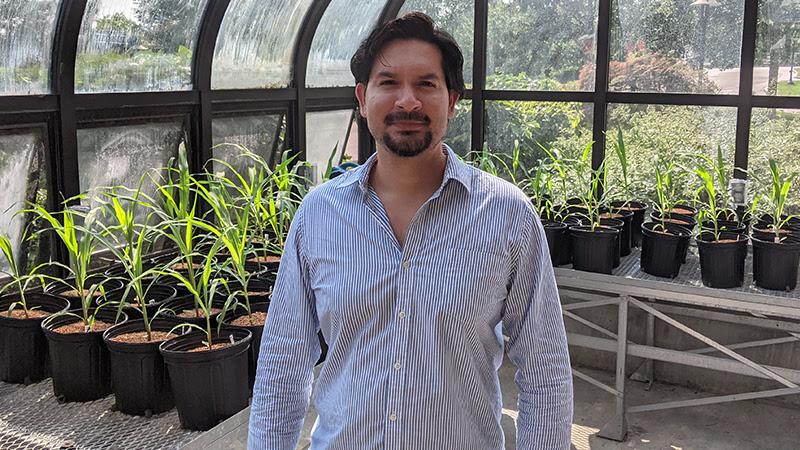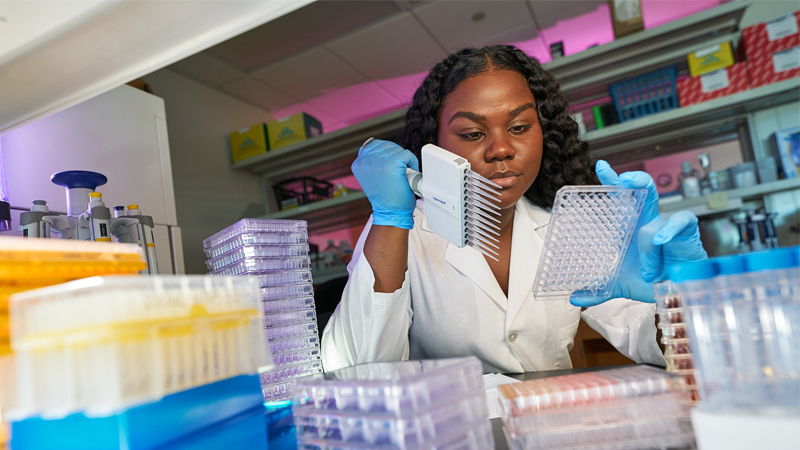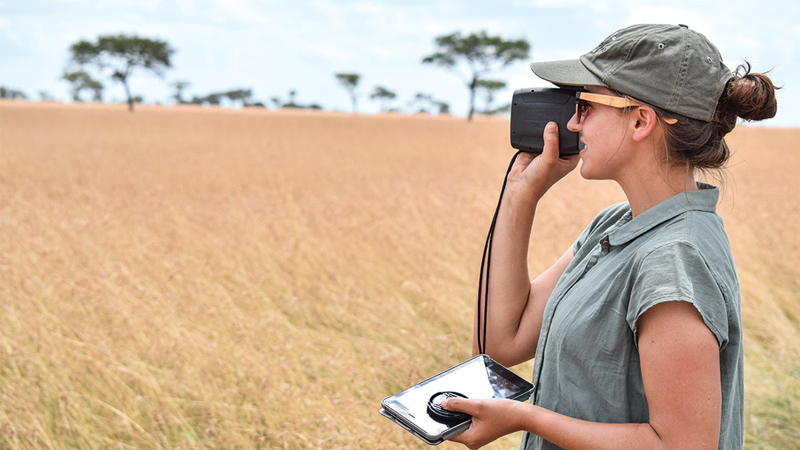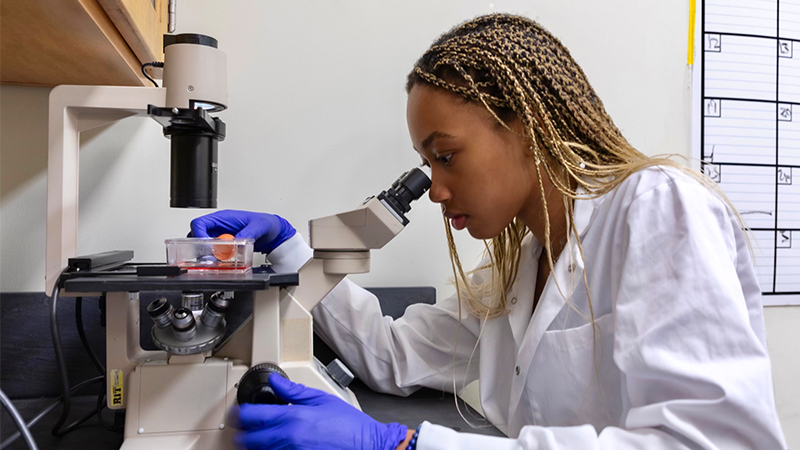Enhancing Crops for our Nation’s Economy and Global Food Security
Eli Borrego, assistant professor in the Thomas H. Gosnell School of Life Sciences, prepares his students to address agriculture challenges to environmentally sustaining a growing global population.

Agriculture is the foundation of civilization. Grass species alone (e.g., maize, wheat, rice) account for 50% of human calories worldwide. Climate change and the rapidly growing human population require the production of more nutritious, safe, and high-quality food on less land, with fewer resources, and under unpredictable weather. Maximizing crop yields and their resistance to current and climate change-induced stress will be what enables the world to environmentally sustain an ever-increasing global population.
Eli Borrego, assistant professor in the Thomas H. Gosnell School of Life Sciences, prepares his students to address these significant food and agriculture challenges. We can make more productive and resilient crops by understanding and manipulating hormones (the master regulators of all biological processes).
Dr. Borrego teaches the principles of Mycology (the study of fungi) and Entomology (insects). In his research lab, he explores the role of a group of hormone-like lipid signals, known as oxylipins, in plants. Understanding these molecules has revolutionized medicine, where nearly 80% of drugs target pathways under oxylipin control but, outside of mammals, little is known about them.
Agriculture has not yet experienced an oxylipin renaissance because their biosynthetic genes and enzymes, their mechanisms of perception, and their downstream signaling are still unknown in plants. One familiar example is green leaf volatiles, which is the scent of cut grass. These molecules warn neighboring plants of incoming danger and summon parasitoid wasps that help protect plants from insect attacks.
“My research program seeks to discover new plant hormones and leverage that knowledge towards crop improvement. Protecting and enhancing our crops is essential for our nation's economy and global food security.”
Dr. Borrego joined RIT in 2019 when he realized it was a place he could thrive and continue his research on agro-economically relevant processes for important crop species. He also enjoys the community on campus and likes how friendly everyone is.
When asked what drew Dr. Borrego to work in higher education, he replied, “I believe education is a great social equalizer, and it enhances a person's quality of life. Higher education allows me to research the problems that interest me and also to create opportunities, especially for first-generation college students and students from disadvantaged backgrounds.”
His advice to students about research and pursuing a career in science? Dr. Borrego said it's never too early to start researching with professors. He suggests students find a professor who does research relevant to them and reach out to the professor. Even as a first-year student, it never hurts to ask. "Once you join a research group you like, it's best to stay in that research group for more than one year. In science and research, depth is better than breadth."
About the Borrego Lab
The Borrego Laboratory strives to improve our understanding of the enigmatic group of fatty acid-derived signals, known as oxylipins, in plant biology and plant interactions with microbes and insects. Utilizing diverse analytical, biochemical, and molecular techniques and transcriptomic, metabolomic, and lipidomic technologies to elucidate fundamental processes while pursuing practical applications for improving crop production. Students are encouraged to contact Dr. Borrego if they are interested in his research.








